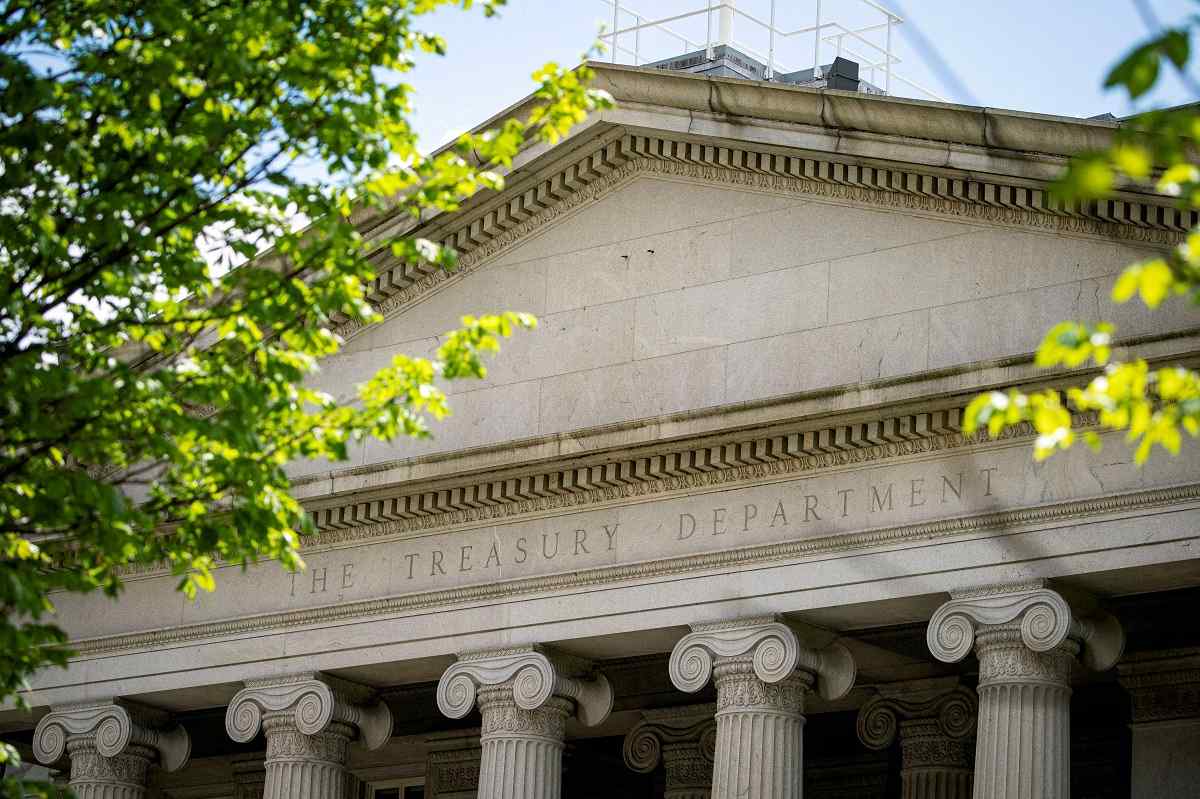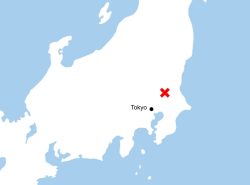
The Treasury Department is pictured in Washington, U.S., April 25, 2021.
11:18 JST, June 21, 2024
WASHINGTON, June 20 (Reuters) – The U.S. Treasury on Thursday said no major trading partner appeared to have manipulated its currency last year, but it added Japan to a foreign exchange “monitoring list,” alongside China, Vietnam, Taiwan, Malaysia, Singapore and Germany, which were on the previous list.
The Treasury’s semi-annual currency report found that none of the countries examined met all three criteria triggering “enhanced analysis” of their foreign exchange practices during the four quarters through December 2023.
Countries are automatically added to the list if they meet two of the three criteria: a trade surplus with the U.S. of at least $15 billion, a global account surplus above 3% of GDP and persistent one-way net foreign exchange purchases of at least 2% of GDP over 12 months.
The Treasury said Japan, Taiwan, Vietnam and Germany all met the criteria for trade surpluses and an outsized current account surplus.
Singapore met the criteria for engaging in persistent foreign exchange intervention and a material current account surplus, and Malaysia only met the current account surplus criteria, but once on the list, it takes two currency report cycles to be dropped off.
China was kept on the monitoring list because of its large trade surplus with the U.S. and because of a lack of transparency surrounding its foreign exchange policies.
“China’s failure to publish foreign exchange (FX) intervention and broader lack of transparency around key features of its exchange rate mechanism continues to make it an outlier among major economies and warrants Treasury’s close monitoring,” the Treasury said in the report.
The report also raises questions about China’s reporting of data on its current account balance, which showed its surplus fell to 1.4% of GDP in 2023 from 2.5% in 2022. The Treasury said China’s balance of payments data published by the State Administration of Foreign Exchange on the country’s trade surplus appear to be at odds with China’s own customs data and that of other trading partners.
A U.S. Treasury official said the department was trying to understand such “anomalies.”
Japan’s interventions
The official said Japan’s recent foreign exchange interventions to prop up the value of the yen were not a factor in deciding to add the country to the currency monitoring list. The official cited Japan’s high 2023 trade surplus of $62.4 billion with the U.S. and its global current account surplus of 3.5% of GDP, up from 1.8% in 2022.
But the Treasury report said that Japan had intervened in April and May 2024 – outside the period covered by the report – for the first time since October 2022, buying yen and selling dollars to strengthen the yen’s value.
The Treasury said Japan was transparent in its foreign exchange operations but added: “Treasury’s expectation is that in large, freely traded exchange markets, intervention should be reserved only for very exceptional circumstances with appropriate prior consultations.”
Speaking to reporters on Thursday, Japan’s top currency diplomat, Masato Kanda, said he did not see a problem with Japan being included on the U.S. currency monitoring list, adding that it was assessed according to mechanical criteria.
The report said most foreign exchange interventions in 2023 focused on selling dollars – actions that strengthen a currency’s value against the dollar. The dollar has strengthened over the past two years as the Fed has raised interest rates sharply to cool inflation.
The greater concern in the Treasury report is on interventions to buy dollars and thus weaken other currencies.
“Thus, it is not a surprise that in the four quarters through December 2023, no trading partner was found to have manipulated the rate of exchange between its currency and the U.S. dollar for purposes of preventing effective balance of payments adjustments or gaining unfair competitive advantage in international trade,” the Treasury said.
Vietnam’s current account surplus jumped to 5.8% of GDP in 2023, while its goods and services trade surplus with the U.S. was $103 billion, meeting criteria for the monitoring list.
Vietnam, which is seeking U.S. recognition as a market economy, has “credibly conveyed” to Treasury that it made net purchases of foreign exchange equivalent to 1.5% of GDP, below the Treasury’s 2% threshold, in 2023.
The Treasury said it “remains satisfied” with Vietnam’s progress in modernizing the transparency of its monetary policy and exchange rate management and will continue to engage closely with the State Bank of Vietnam.
"News Services" POPULAR ARTICLE
-

American Playwright Jeremy O. Harris Arrested in Japan on Alleged Drug Smuggling
-

Japan’s Nikkei Stock Average as JGB Yields, Yen Rise on Rate-Hike Bets
-

Japan’s Nikkei Stock Average Licks Wounds after Selloff Sparked by BOJ Hike Bets (UPDATE 1)
-

Japanese Bond Yields Zoom, Stocks Slide as Rate Hike Looms
-

Japan’s Nikkei Stock Average Buoyed by Stable Yen; SoftBank’s Slide Caps Gains (UPDATE 1)
JN ACCESS RANKING
-

Keidanren Chairman Yoshinobu Tsutsui Visits Kashiwazaki-Kariwa Nuclear Power Plant; Inspects New Emergency Safety System
-

Imports of Rare Earths from China Facing Delays, May Be Caused by Deterioration of Japan-China Relations
-

University of Tokyo Professor Discusses Japanese Economic Security in Interview Ahead of Forum
-

Japan Pulls out of Vietnam Nuclear Project, Complicating Hanoi’s Power Plans
-

Govt Aims to Expand NISA Program Lineup, Abolish Age Restriction

























